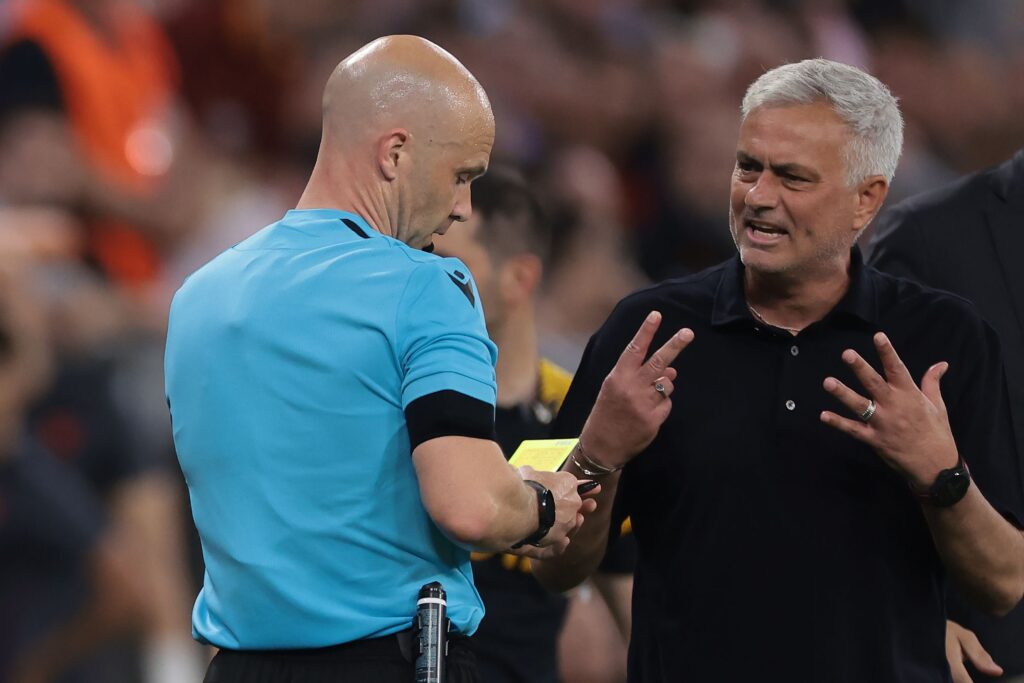
BUDAPEST, HUNGARY - MAY 31: Jose Mourinho Head coach of AS Roma discusses with the Referee Anthony Taylor of England during the UEFA Europa League 2022/23 final match between Sevilla FC and AS Roma at Puskas Arena on May 31, 2023 in Budapest, Hungary. (Photo by Jonathan Moscrop/Getty Images)
Referee Anthony Taylor has recounted the distressing verbal confrontation he faced from Jose Mourinho following the 2023 UEFA Europa League final. After AS Roma lost to Sevilla in a penalty shootout at the Puskas Arena in Budapest, Mourinho confronted Taylor in the stadium’s car park, unleashing a barrage of abusive language.
This incident occurred after Mourinho’s first defeat in a European final, leaving him visibly frustrated with the officiating decisions. Following the match, UEFA imposed a four-match ban on Mourinho and fined him £47,300 for his actions.
In a recent interview with BBC Sport, Taylor described the event as the most challenging experience of his career in terms of receiving abuse. “That’s the worst situation I’ve dealt with in terms of abuse,” he stated. He emphasized the personal toll of the incident, noting that he was traveling with family members at the time. He expressed concern over how such behavior reflects on society.
“Even in a match like that, where there was actually no major mistakes in the game, it highlights the impact of people’s behavior on others,” he said. Taylor added that the experience has made him reconsider the decision to attend matches with his family, as they have not done so since the incident.
When asked if he believed Mourinho’s behavior could have influenced the fans who later directed abuse at him, Taylor responded affirmatively. “Yeah. I think if we’re being honest, yeah,” he noted.
Refereeing Under Scrutiny
Taylor also addressed the intense scrutiny referees face in modern football, particularly in the Premier League. He explained that the constant analysis creates an unrealistic expectation for referees to achieve perfection in their decisions. “In reality, perfection doesn’t exist,” he commented, stressing the need for a more supportive environment for officials.
He pointed out a troubling trend: “We have to accept that if we don’t create the right environment for people to thrive, then people will be fearful, and that will have a negative impact on individuals and performance in the long term.”
Taylor’s reflections shed light on the broader issues of accountability and conduct in professional sports. The challenge remains: how to foster a culture that respects officials while maintaining high standards for performance in such a high-stakes environment.







